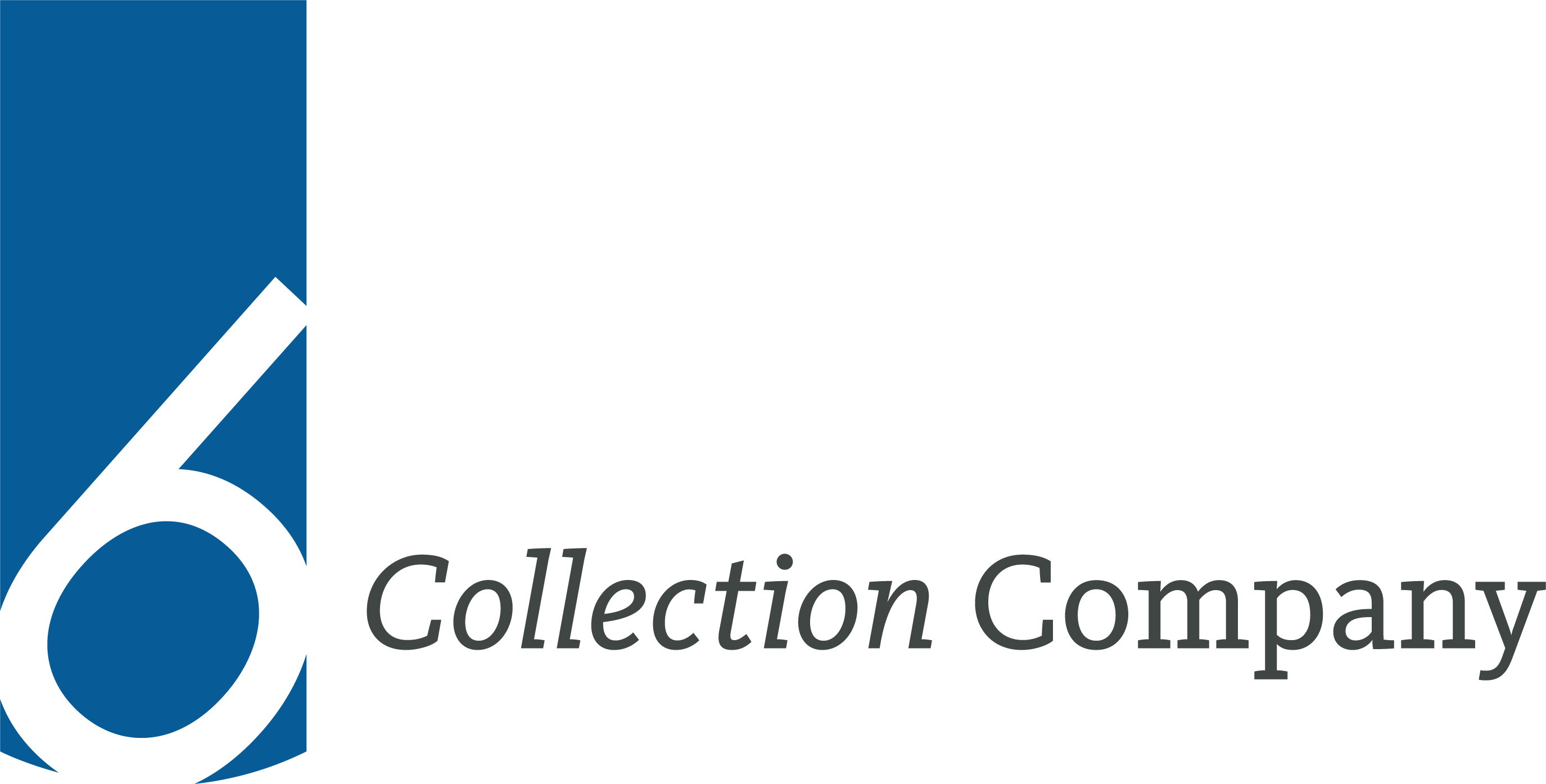Debt Collection Brazil:
fast and comprehensive
Are you at your wit’s end because a business client in Brazil isn’t paying an invoice? Is your debtor not responding to your payment reminders? Or do you have other outstanding claims in Brazil? The international debt collection specialists at Collection Company will recover your money.
As experts in international debt collection, we have developed a well-thought-out debt collection procedure. Together with our carefully built network of local lawyers, attorneys, and bailiffs, we ensure you receive what you are owed as quickly as possible.
- Nationwide coverage in Brazil
- One dedicated English speaking contact
- Proven track record
- Tailor-made services for each case
- Expert advice and a transparent process
- 24/7 online access
Specialized in collecting debts in Brazil
Unpaid debts are always troublesome, especially when the debtor is on the other side of the world. You’re not only hindered by a vast distance, but also by a significant time difference, a language barrier, and unfamiliar laws and regulations.
How can you collect your outstanding invoices in Brazil? What are the debt collection practices in Brazil? What are your rights and obligations regarding debt collection? Brazil has for example local laws to protect customers from unfair debt collection practices.
As an international debt collection agency Collection Company takes that worry off your hands. Our international collection specialists have dealt with this many times before and know exactly what steps to take to collect your money as quickly and efficiently as possible. Additionally, we work with a broad network of Brazilian lawyers, legal experts, and bailiffs who can assist with taking legal measures and the collection of your money.
As a creditor, you communicate with our English-speaking point of contact. This debt collection specialist coordinates the procedure and enlists local experts when necessary. You can continuously monitor the progress of your collection in Brazil in your own Online Cockpit.
Brazil debt collection: Why choose Collection Company?
- Global coverage
- One dedicated English speaking contact
- Experienced debt collection specialists with knowledge of Brazilian legislation
- Broad network with local lawyers and bailiffs
- Seamless connection from extrajudicial to judicial action
- Effective local approach
- 24/7 tracking through your own Online Cockpit
Submit your claim now
Do you have outstanding claims in Brazil? Enter your details, and one of our debt collection specialists will contact you as soon as possible to discuss your claim.

How does debt recovery work in Brazil?
Most of the times we begin with an out-of-court phase in our debt collection efforts. It’s no different in Brazil. During an out-of-court or amicable collection, we send reminders to your debtor and contact them. We try to persuade your debtor to pay the bill. We also inform them that the costs will increase significantly if they don’t pay (on time).
Following the out-of-court phase, a judicial collection process begins. If your debtor remains in default even after the amicable process, we take them to court.
Collection Company handles both out-of-court and judicial collections in Brazil. We work with Brazilian lawyers, attorneys, and bailiffs that know everything about the Brazilian legal system. Below, we explain in more detail what the out-of-court (amicable) and judicial phases look like.
- Upload your invoice online
- We'll start your case
- We'll start with the debt collection process
- Together we decide the best strategy for collecting your debts
- Monitor the status of your case 24/7
- Any questions? Your personal accountmanager will answer them all!
- Your invoice is payed
Out-of-court debt collection
An out-of-court debt collection is an effective way to recover claims. By reminding your debtor of their payment obligations, we can get most debtors to settle their debts. If they don’t, the debts will only continue to grow.
One of the advantages of an out-of-court procedure is that it allows you to maintain a good relationship with your customer. Perhaps your debtor simply forgot the invoice or has another valid reason for the late payment. By not dragging your debtors to court immediately and letting us handle the payment reminders, the business relationships with your customers remain intact.
During an out-of-court debt collection process, we contact your debtor 16 times over three weeks. This contact includes sending a formal notice, payment reminders and a demand letter. We also make phone calls, send emails, and text your debtor. The longer the payment is delayed, the more pressure we apply. Eventually, we send a final demand, giving your debtor one last chance to pay the bill. If the money is not received by the specified date, we will continue with judicial recovery and take legal action.
Commencing legal proceedings in Brazil
Brazil has a federal system consisting of one federal district and 26 states. Each state has its own court system with regional courts and appellate courts. Every state is divided into different districts, and each district has at least one court. For judicial debt collection, we need to file a lawsuit in one of the courts (Varas) in the region of your debtor.
There is an expedited procedure in Brazil for monetary claims. To utilize this procedure (Ação monitória), according to the civil procedure code you must have written signed evidence of the claim. This could be a signed contract, for example.
If your debtor does not contest the claim, the court will issue a payment order within 15 days. If your debtor does not pay the debt within three days of receiving the payment order, the order becomes enforceable. This means that a Brazilian bailiff can seize assets from your debtor.
If your debtor does contest the claim (or if you do not have written signed evidence for your claim), we must initiate a civil procedure and send your debtor a summons within 15 days. Both parties can then provide evidence. During a hearing both parties can explain their positions. The judge will then make a ruling.
Appeal
Both parties can appeal a judge’s ruling. Each state in Brazil has its own court of law (Tribunal de Justiça). This highest judicial authority in the state handles the appeal. In the appeal, the case is reviewed by three judges who issue a new ruling. Only when neither party has the option to appeal further does the judicial ruling become final.
Arbitration
Arbitration is a commonly used alternative to court proceedings. Instead of bringing the case to a government judge, the matter is decided by an arbitration panel. An arbitral award has the same enforceable status as a court judgment, which means a bailiff can seize assets from your debtor based on the award.
Both parties must agree that arbitration will be the method used to resolve disputes. This is usually done in advance, for example, by including it in the contract or general terms and conditions. Once the parties have agreed to submit the arisen conflict to arbitration, it is no longer possible to file a lawsuit.
The advantage of arbitration is that it is generally less time-consuming. While it typically takes time for a government judge to schedule the case, an arbitration panel can be convened immediately to rule on the matter. Depending on the agreements made, there is often no possibility of appeal, making the process quicker. It can also be agreed that the case will be handled behind closed doors.
In 2002, Brazil ratified the New York Convention, which means the country recognizes international arbitral awards and ensures their enforcement.
Enforcement procedures in Brazil
Once a court or arbitral ruling becomes final (neither party decides to appeal, or no further appeals are possible), it can be enforced. This means that if your debtor still does not pay the owed amount even after a court or arbitral ruling, we can file a request for enforcement with the court. In that case, the judge will order your debtor to pay the outstanding amount within 15 days. If your debtor fails to do so, the judge can seize the debtor’s assets, such as bank accounts and movable or immovable property. This allows you, as the creditor, to be paid from the proceeds of the seizure.
Prejudgment attachment
Before going to court, it is possible to impose an interim attachment on your debtors belongings. This is a provisional measure to secure your debtor’s assets while the case is under judicial review. By imposing a prejudgment attachment, we prevent your Brazilian debtor from embezzling money or goods in the run-up to a court ruling, ensuring that there is still something for you to recover. Additionally, the judge can prohibit your debtor from leaving the state or the country.
To impose a prejudgment attachment, we need to file a request with the court. The judge will consider the likelihood of your claim’s success when evaluating the request.
Insolvency proceedings in Brazil
Filing for the bankruptcy (falência ) of your debtor after an unpaid debt is a strong leverage tool if your debtor truly refuses to pay. If your debtor is declared bankrupt, they lose almost everything. Most debtors will do everything possible to prevent this and will eventually pay the claim.
In Brazil, it is possible to file for the bankruptcy of your debtor if their debts are equal to or higher than 40 times the minimum wage.
If we file a bankruptcy petition with the court, it will be publicly announced, and other creditors will have 15 days to come forward. If your debtor is eventually declared bankrupt, a trustee will identify the assets the bankrupt individual possesses and will try to pay off the debts from this estate.
Now, it is not our primary goal to bankrupt your debtor. If we start a bankruptcy procedure, there is a good chance that your debtor will choose to pay the outstanding debt. In that case, we can withdraw the petition.
More information?
Looking for an international debt collection specialist who can assist you throughout the entire debt collection process? Fill in your contact details, and we will get in touch with you as soon as possible.

Legal Areas of debt collection in Brazil
From unpaid invoices to overdue salaries and damage claims: Collection Company ensures you get what you’re entitled to, even if your debtor is in Brazil.
Our debt collection specialists assist you with claims in the following areas of law:
- Construction Law
- Rental and Leasing
- Purchase and Sale
- Employment Law
- Agency Agreement
- Transport
- Damages and Unlawful Acts
We don’t just work directly with creditors; we also collaborate with intermediaries like lawyers and accountants.
Other professional services in Brazil
- Reliable advice on contracts and terms
- Credit information about companies in Brazil
- Disputes including issues like Retention of Title and Right of Recourse
- Mediating in reaching private settlements and agreements
Submit your claim in Brazil
You can submit your claim directly to us via our debt collection registration form. Would you like to consult with one of our legal professionals first? Leave your details or call us at +31 70 – 410 2800.
Free advice on debt collection in Brazil
Submit your personal information and plan your free consult.

FAQ: Frequently Asked Questions about debt collection in Brazil
FAQ: What do we need for a debt recovery in Brazil?
If it comes to legal proceedings, we will need documents to support your claim. Think, for example, of contracts, invoices, and reminders.
We understand better than anyone that a file is not always complete. Are you missing certain documents? Then consult with our debt collection specialist about what evidence you do have to support your claim.
If possible, we would like to receive (copies of) the following documents:
- (Purchase) contracts and agreements, emails discussing the terms, fax confirmations, etc.
- A summary of the agreed terms
- Invoices
- Reminders
- General terms and conditions
- Proof of delivery
FAQ: Is a retention of title valid in Brazil?
In Brazil, a retention of title clause is legally valid. A retention of title clause is a provision in sales conditions that ensures the ownership of delivered goods only transfers to the buyer once an additional condition is met. Typically, this condition is the full payment of the agreed upon price. Without a retention of title clause, ownership transfers to the buyer upon delivery. Even if the buyer subsequently fails to meet their payment obligations, they remain the lawful owner of the delivered goods. In Brazil, an extended retention of title is not recognized, for example, for goods that have been processed into or incorporated into other products.
FAQ: What is the statute of limitations for my claim?
If you have an outstanding claim in Brazil, it is important to act quickly. There is a statute of limitations for claims, which varies depending on the type of claim from 1 to 10 years. Once the statute of limitations has expired, it is no longer possible to pursue a legal debt collection procedure.
FAQ: Why choose Collection Company for debt collection in Brazil?
If you hire one of the debt collection agencies in Brazil, you will have to deal with a significant time difference. You will likely need to communicate in Portuguese, and there is a good chance that that debt collection firm will only handle the extrajudicial phase. If you need to go to court, you’ll have to find your own lawyer or law firm in Brazil.
With Collection Company, you won’t have these issues. Collection Company specializes in collecting debts abroad. We manage the entire collection process, from extrajudicial to judicial procedures, and have a network of lawyers and attorneys in Brazil. However, all communication goes through our English-speaking debt collection specialist.
Why 40.000 customers tried our services
- The #1 collection company in the Netherlands and abroad
- Regional & local specialists
- Years of experience with international invoices
- Your own personal contact
- Extensive advice on the legal process
- Monitor the status of your case 24/7
Meet our specialized legal team
- Joost Konings LLMLaw expert
- May Leung LLMLaw expert
- Wesley Boeters LLMInterim lawyer








